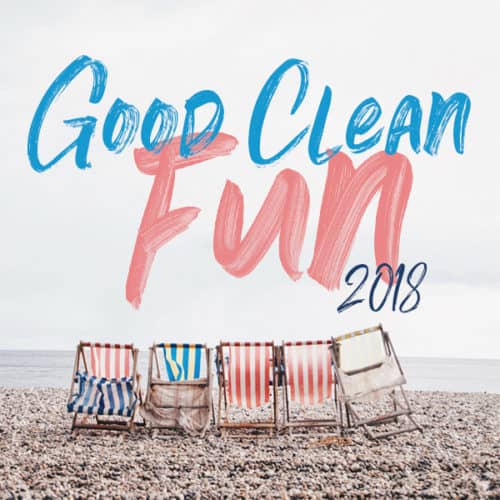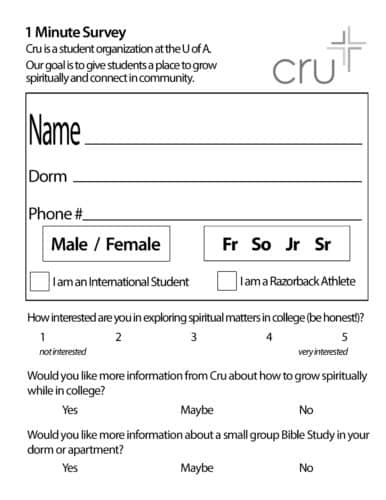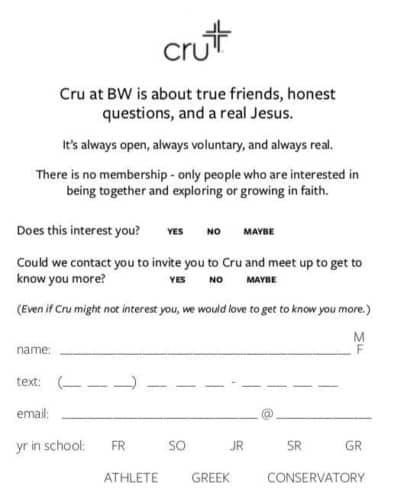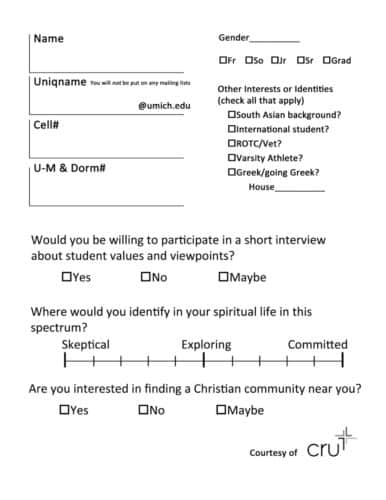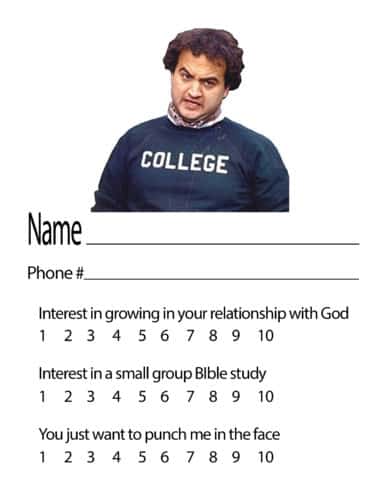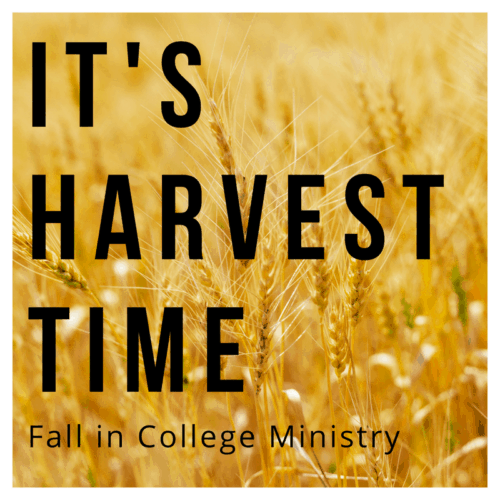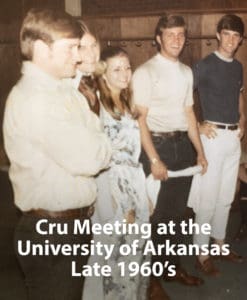
I’m a book pusher. If I’m around you for more than 5 minutes, I will probably recommend a book to you. I can’t help it. I really think reading might be the antidote to much of what ails us as a society.
In our distracted age, book readers almost possess superhuman ability- the ability to think deeply.
The classic dystopian book Fahrenheit 451 ends with a tiny glimmer of hope: a small band of apocalypse survivors, huddled around a fire quoting memorized books (including Bible passages!). They are the hope of the world.
“Reading forms us. Just as water, over a long period of time, reshapes the land through which it runs, so too we are formed by the habit of reading good books well.”
Karen Prior – On Reading Well
Overall, here’s my Top 5 books I read in 2018:
- 12 Rules for Life – Jordan B. Peterson
- The Next Evangelicalism – Soong-Chan Rah
- Disruptive Witness – Alan Noble
- Letters to the Church – Francis Chan
- Women of the Word: How to Study the Bible with Both Our Hearts and Our Minds – Jen Wilkin
I’m constantly on the lookout for book recommendations from friends who read a lot. I get to benefit as they filter out the best of the best for me to read. So in the spirit of “do unto others” I typed up my favorite books I read this past year. I read 100 books in 2018 and these were the very best.
I thought it would be helpful to rank them by genre (so if you’re looking for a good fiction book, you can skip down to Fiction).
So here they are, ranked in order of amazing-ness.
Christian Devotional Books
- Letters to the Church – Francis Chan
- As you would expect, Francis Chan does not hold back in this scathing critique of American churches. If you want your view of the sacredness of the church elevated & challenged, read.
- “As I examine the state of the Church I can’t help but think that God is displeased w many of the churches in America”
- “Is there ever a point when a church is no longer a church? Just because you walk into a building with the word ‘Church’ painted on a sign doesn’t mean God see it as an actual church”
- “By catering our worship to the worshippers and not to the Object of our worship, I fear we have created human-centered churches.”
- Women of the Word: How to Study the Bible with Both Our Hearts and Our Minds – Jen Wilkin
- Clear, concise and visionary. Nevermind the title – wonderful book for both men and women. Wilkin makes a strong case for the need for Biblical literacy: to raise up students who know how to study God’s Word for themselves.
- “We must learn to study in such a way that we are not just absorbing the insights of another, but are actually being equipped to interpret and apply Scripture on our own.” Jen Wilkin will teach you how to do just that.
- The Call: Finding and Fulfilling the Central Purpose of Your Life – Os Guinness
- You get more than you bargained for with this book. I picked up Guinness’s book on a whim- to read more on decision making/career. And ended up getting a lesson on the fall of Western Civilization and how calling is the answer. Os is brimming with wisdom. Though written before Dreher’s Benedict Option, I found it to be a helpful counterpoint. I agree w Dreher re prescription but Guinness is closer to the cure. (click to read my full Goodreads review)
- Principles of Conduct: Aspects of Biblical Ethics – John Murray
- JI Packer calls him one of “the best Reformed theologians of our time” and Principles of Conduct “Murray’s masterpiece” in which Murray ties together the law of God and the grace of God.
- Religious Affections – Jonathan Edwards
- Most difficult book I read all year. Edwards is notoriously long-winded and punctuation averse. But taken in small doses, every morning as part of your Quiet Time, totally worth the effort.
- Edwards makes some very challenging claims (essentially: You’re not saved if you are not passionate. You’re not saved if you’re not growing in the fruits of the spirit). But they are hard to argue with because of the flood of Bible verses Edwards uses as proofs.
- He’s not merely stating his opinion. He’s attempting to make sense of the torrent of Scripture that cuts against modern easy-belief-ism. He’s saying: let’s look at Scripture and try to make sense of this flood of difficult teachings. Lets emphasize the things that Scripture emphasizes. “To insist very little on those things on which the Scripture insists much, is a dangerous thing.”
- Commentary on Galatians – Martin Luther
- I’ve heard it said that this is the greatest commentary ever written. It’s surprisingly readable. Especially great paired with Keller’s Galatians commentary.
- Generous Justice: How God’s Grace Makes Us Just – Tim Keller
- Galatians for You – Timothy J. Keller
Understanding the Times
(my favorite category of 2018!)
- 12 Rules for Life: An Antidote to Chaos – Jordan B. Peterson
- Most thought provoking book I’ve read in a long time. This one book set the course for my reading for 2018.
- In 12 Rules, Peterson is essentially asking -“How can one live the good life?” Jordan Peterson gets so much right. SO much. In his words:
- We all fall short of the glory of God
- We have missed the mark because of original sin
- And the goal is to get back to walking with God
- What do we do with our falling short? Dr. Peterson’s answer is “grow the hell up.” He is unable to see grace.
- The foreword by Dr. Norman Doidge ends on this intriguing note: “Perhaps, as unfamiliar and strange as it sounds, in the deepest part of our psyche, we all want to be judged.”
- read my full GoodReads review here
- Amusing Ourselves to Death: Public Discourse in the Age of Show Business – Neil Postman
- Written in 1985, Amusing could not be more relevant to 2018 and humankind’s endless appetite for distraction. I read two more Postman books in 2018 after reading Amusing because I was so taken by his ability to make sense of vast amounts of history- to explain how (and why) we got to now, especially as it relates to technology. I wish he were alive to explicate our modern iPhone epidemic.
- Postman explains so much of our world- how technology affects our ability to think, and the resulting effects: anxiety and outrage (instead of reasoned discourse).
- Postman puts into words what many of us feel – the glut of information causes anxiety, incoherence, and impotence. In the place of meaning, technology gives us amusement.
- read my full GoodReads review here
- Born a Crime: Stories From a South African Childhood – Trevor Noah
- My favorite audiobook of all time. Noah is phenomenally gifted with accents. Not too many books out there like this that could be marketed with “have fun while you learn about systemic racism!” [language warning!]
- Making Sense of God: An Invitation to the Skeptical – Tim Keller
- This summer I watched in amazement Tim Keller’s speech at the British Parliament on what Christianity offers British society. Well worth 25 minutes of your time- Tim Keller winsomely explains how western civilization and human rights are 100% based on Christianity and the Bible.
- I texted a friend – “If he could turn that 25 minute talk into a book…THAT would be the book we need.”
- I had already purchased Making Sense of God by Tim Keller but it was just collecting digital dust in my Kindle library.
- In mid-fall, on a whim, I finally started to read it.
- I immediately texted my friend: “I just started it, but I think Keller’s Making Sense of God might be the book I’m looking for.”
- Making Sense of God explains the chaos of 2018.
- The Shallows: What the Internet Is Doing to Our Brains – Nicholas Carr
- “We program our computers and thereafter they program us.”
- This book is packed with wisdom and insight. It’s worth the price of the book for Carr’s insights on how we learn: how our brains retain information and are reprogrammed, comparing it to filling a bathtub with a thimble.
- “When we read a book, the information faucet provides a steady drip, which we can transfer, thimbleful by thimbleful, into long-term memory & forge the rich associations essential to the creation of schemas [complex, “thick” understanding].
- Technology’s “frequent interruptions”, on the other hand, “scatter our thoughts, weaken our memory, and make us tense and anxious”.
- The Coddling of the American Mind: How Good Intentions and Bad Ideas Are Setting up a Generation for Failure – Greg Lukianoff and Jonathan Haidt
- As a parent of three teens and a college minister, this book made sense of what I’d seen but couldn’t put my finger on.
- Seeking to answer: why are today’s college students so fragile, the authors discover that much of the blame lies with over-protective parents.
- iGen: Why Today’s Super-Connected Kids Are Growing Up Less Rebellious, More Tolerant, Less Happy–and Completely Unprepared for Adulthood–and What That Means for the Rest of Us – Jean M. Twenge
- Researcher and professor Dr. Jean Twenge has done extensive research on this generation of college students and found that there is just one activity that is significantly correlated with anxiety, loneliness, and depression: Screen Time (and girls are more affected by this than boys).
- This book seems to be THE go-to book on GenZ that other books reference).
- “There is a simple, free way to improve mental health: put down the phone, and do something else.”
- On Reading Well: Finding the Good Life Through Great Books – Karen Swallow Prior
- On Reading Well is a slow read. Very dense and literary- making me exercise different mental muscles. But Dr. Prior is incredibly wise. The introduction (on the power of reading) is worth the price of the book.
- The Disappearance of Childhood – Neil Postman
- “The printing press created childhood” and technology is now “disappearing” it.
- I’m a sucker for “how we got to now” books and Postman is the best- incredible historical overview of the origins of childhood, education, and literacy. Postman says we “must conceive of parenting as an act of rebellion against culture.” How to resist? Stay married. Limit kid’s technology exposure.
- How Should We Then Live? The Rise and Decline of Western Thought and Culture – Francis A. Schaeffer
- Technopoly: The Surrender of Culture to Technology – Neil Postman
- The Future Is History: How Totalitarianism Reclaimed Russia – Masha Gessen
- Fascinating book. But as one reviewer commented “its fundamental problem is that it seems to go on almost endlessly like Russia itself!” If it were 200 pages shorter I’d be recommending it to everyone. The last 1/3 of the book was a slog, strangely veering into a detailed history of LGBTQ rights in Russia (or lack thereof). Read the first 2/3 of the book – incredible insights into why the Russian people crave strong leaders.
Ministry/Leadership
- The Next Evangelicalism: Freeing the Church from Western Cultural Captivity – Soong-Chan Rah
- Dr. Rah makes a compelling case that the future of Christianity in America rests on the shoulders of immigrants and ethnic minority leaders.
- A few key takeaways:
- “Contrary to popular opinion, the church is not dying in America; it is alive and well, but it is alive & well among the immigrant & ethnic minority communities”
- Multiracial Americans will lead the 21st century American church
- The flood of immigrants in the past few decades has been a God-ordained action to save the American church (click to read my full goodreads review)
- Disruptive Witness – Alan Noble
- This fall, Tim Keller tweeted re Disruptive Witness: “Best book I’ve read recently. No, I did not get paid, nor was I contacted to say that. I mean it.”
- It’s that good. This book is a must read for anyone doing ministry in America, especially for those working with young people.
- Alan Noble is the first I’ve seen to address both phones and secularism.
- “distraction & secularism…perpetuate each other: we long for distraction in part because we are terrified of living in a meaningless world, & we struggle to discover a satisfying sense of fullness in the world because we’re constantly distracted” (full GoodReads review)
- Atomic Habits: An Easy & Proven Way to Build Good Habits & Break Bad Ones – James Clear
- We are what we repeatedly do. Atomics habits gives very practical ways to make small changes that will yield big results.
- “If you want to predict where you’ll end up in life, [just] follow the curve of tiny gains/losses…how your daily choices will compound 10 years down the line. Are you spending less than you earn each month? Are you reading books & learning something new each day?”
- Extreme Ownership: How U.S. Navy SEALs Lead and Win – Jocko Willink
- Best book on leadership I’ve read in a long time. Makes for a great audiobook (because Jocko sounds just like you think a Navy Seal named Jocko would sound like).
- Jesus, Justice, and Gender Roles: A Case for Gender Roles in Ministry – Kathy Keller
- Giving up Control: Why movements are preferable to revivals – A.J. DeJonge
- White Awake: An Honest Look at What It Means to Be White – Daniel Hill
- Divided by Faith: Evangelical Religion and the Problem of Race in America – Michael O. Emerson
- The Minority Experience: Navigating Emotional and Organizational Realities – Adrian Pei
Historical
- Man’s Search for Meaning – Viktor E. Frankl
- Profound book that chronicles Frankl’s time in a concentration camp and his attempt to unravel what caused some people to survive and others to give up hope. He finds: man has to have meaning and purpose.
- “The meaning of life is to be found outside of man. Man is not a closed system”
- “The key to overcoming anxiety…is to lose one’s self in a mission outside of oneself”
- The Hiding Place: The Triumphant True Story of Corrie Ten Boom
- Truly unbelievable courage and faith. Incredibly inspiring.
- Empire of the Summer Moon: Quanah Parker and the Rise and Fall of the Comanches, the Most Powerful Indian Tribe in American History – S.C. Gwynne
- Fascinating and sad story of the Old West (I found it more balanced than “Bury My Heart at Wounded Knee”. Especially interesting for those who have lived in Dallas or West Texas as much of the book takes place in North Texas.
- Founding Brothers: The Revolutionary Generation – Joseph J. Ellis
- This Pulitzer Prize winning book is one of my favorite historical nonfiction books of all time. My favorite type of book – where the author puts in the work to comb through vast amounts of research to present a short, insightful summary.
- I hadn’t read it in years, and thoroughly enjoyed revisiting it. (my full GoodReads review)
- I Am a Man/Survival in Auschwitz – Primo Levi
- The Guns of August – Barbara W. Tuchman
- Pulitzer-prize winning book that many would say is the greatest WWI book written.
- Night- Elie Wiesel
- a haunting, sometimes poetic survivor’s account of the Holocaust)
- The Clash of Civilizations and the Remaking of World Order – Samuel P. Huntington
- This is a top book that “Ivy League students are reading that you aren’t”. Written in the 90’s, Huntington brilliantly predicts the the rise of China and the colliding world views that led to 9/11. Fascinating though WAY longer than it needed to be.
- Hellhound on His Trail: The Stalking of Martin Luther King, Jr. and the International Hunt for His Assassin – Hampton Sides
- Astoria: John Jacob Astor and Thomas Jefferson’s Lost Pacific Empire: A Story of Wealth, Ambition, and Survival – Peter Stark
Fiction
- Fahrenheit 451-Â Ray Bradbury
- Aside from the Harry Potter series, maybe my all-time favorite fiction book
- Pride and Prejudice – Jane Austen
- Animal Farm -Â George Orwell
- Funny and incredibly insightful. Though written before Mao’s rise in China, this book reads like a history of Communist China.
- Brave New World – Aldous Huxley
- Gilead (Gilead, #1) – Marilynne Robinson
- Frankenstein -Â Mary Wollstonecraft Shelley
- A tough read. But man, does it stick with you. I think of this book often.
- Shelley wrote this book when she was EIGHTEEN! At 18 she was far more literate and erudite than I will ever be.
- The Strange Case of Dr. Jekyll and Mr. Hyde – Robert Louis Stevenson
- A familiar story but incredibly insightful re human nature. It’s a vivid depiction of Romans 7-8. What if we could simply split off our sinful nature (into a separate person) and just keep the “good” part of us?
- The Hate U Give -Â Angie Thomas
- This book proves the potency of novels. Thomas is not saying anything new but it’s hitting a far broader audience that may not take the time to read Ta-Nehisi Coates, Ralph Ellison, Isabel Wilkerson, or Bryan Stevenson.
- The Underground Railroad – Colson Whitehead
